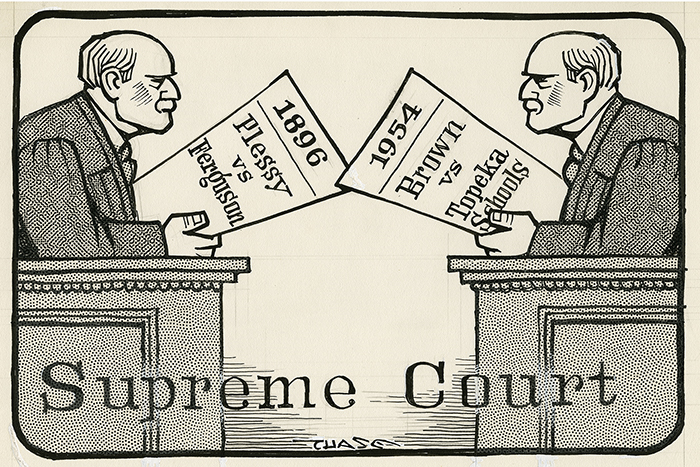In the controversial Plessy v. Ferguson decision, in which the majority used the "separate but equal" test to sustain segregation laws, only Justice John Marshall Harlan dissented. In the historic case of Brown v. Board of Education of Topeka, Kansas (1954), in which the Court overturned Plessy and determined that "separate but equal" was inherently unconstitutional and a violation of the Equal Protection Clause of the 14th Amendment, Justice Harlan's immortal dissent became law.

In The Civil Rights Cases of 1883, Justice Harlan presented a crucial 13th Amendment argument that he reaffirmed in his dissent in the Plessy case, arguing that the amendment accomplished more than just ending formal slavery and involuntary servitude. Additionally, "badges and episodes" of slavery were forbidden. He claimed that the 13th Amendment "declared universal civic freedom in the nation." The anger of Justice Harlan over Plessy was evident. He thought that Dred Scott v. Sandford (1857), in which the Court ruled that Black Americans could never become citizens of the United States, would be seen as equally harmful as the Court's decision in Plessy. 
Justice Harlan's career and life offer numerous lessons, not the least of which is a reminder of the importance of open-mindedness and the readiness to reexamine matters in light of new information and shifting social conditions.

No comments:
Post a Comment